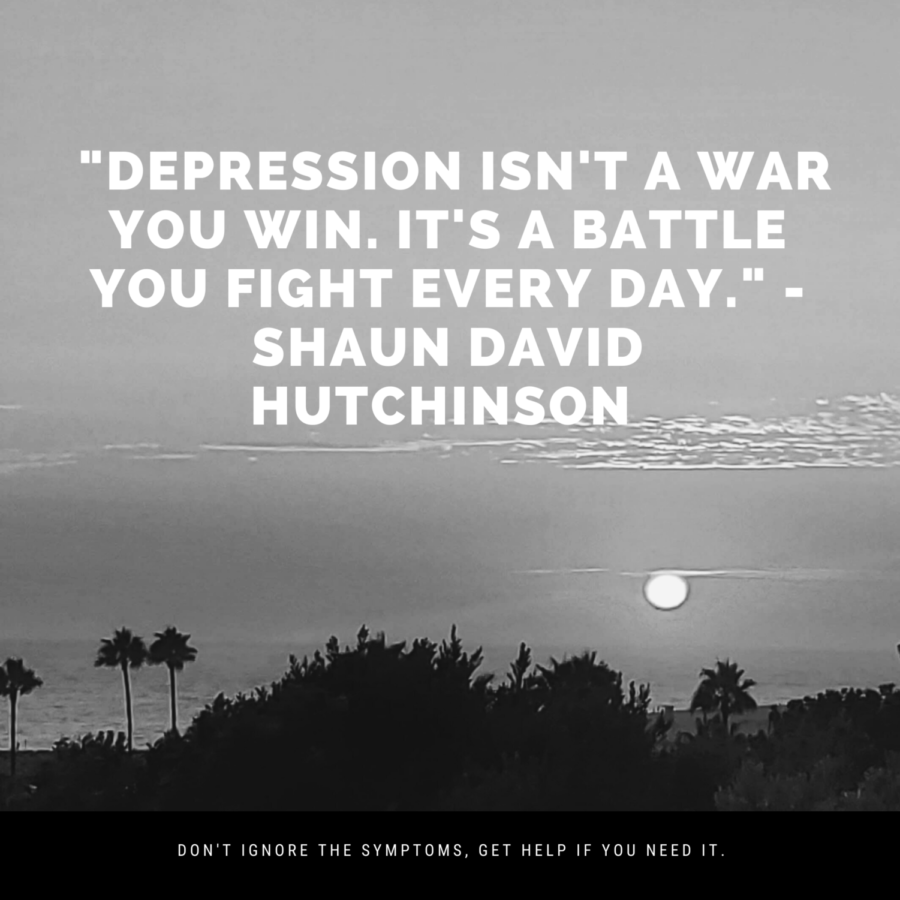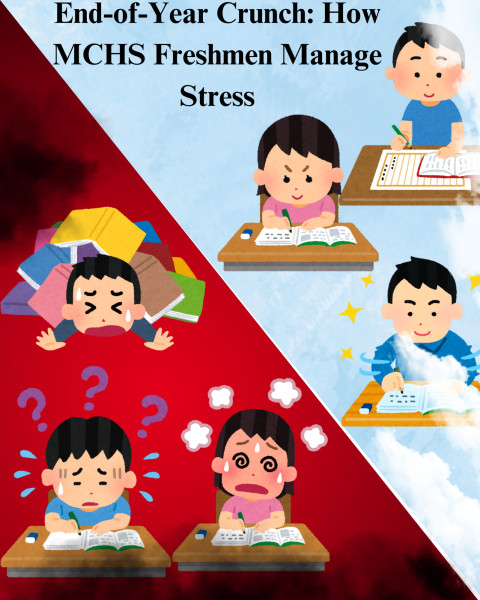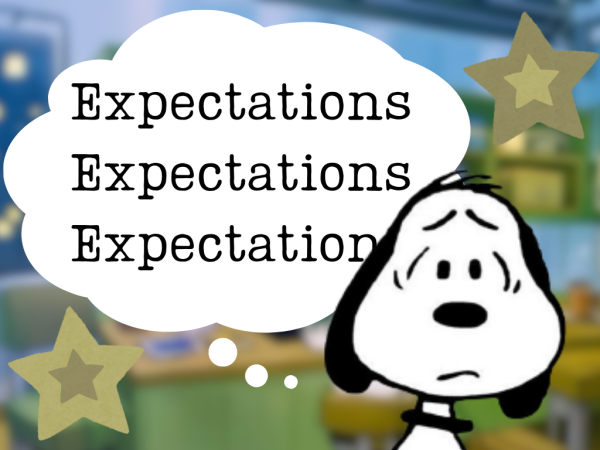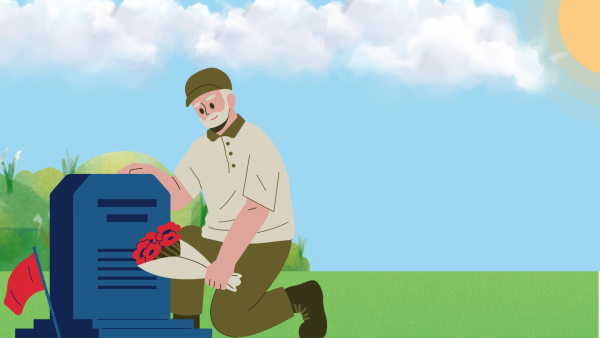Depression and depression denial in Hispanic households
Ashley Santana (created with Canva)
Although depression goes unrecognized in many Hispanic households, there are many resources available.
When you hear the word “depression,” you’ll most likely think of suicide. However, there’s more to it than that. Depression is a mental illness that’s both serious and common. It affects you in the way you feel, think, and act. It can affect people in different ways, and you usually can’t tell who has it because it’s often overlooked as sadness. Symptoms of depression include loss of energy, loss of interest in hobbies you used to enjoy, and difficulty concentrating.
Sophomore Carol Perez said, “It’s something very hard to go through, and people get it for different reasons. There is a lot more exposure on it now than there was before and I’m grateful for that. I know there are a lot of old fashioned people who don’t give it much importance.”
Depression can affect you in big and small ways. It could be as small as not having the motivation to get up in the morning or as big as having suicidal thoughts.
“Everyone is affected differently but personally I struggle with being able to keep up with schoolwork, cleaning my room, showering, and keeping up eating properly. I think generally it’s hard to keep up with self care. Being tired is a huge one, numb, very empty, dissatisfied, and sometimes stressed,” Perez said.
Sophomore Lizeth Cruz said, “It’s an everyday thing that affects a person in a way that they find it hard to get up in the morning, to go out, to eat, to shower, to get ready, to socialize. It affects pretty much everything they normally do. Some symptoms could include addiction, self harm, avoiding big crowds, distancing themselves causing them to lose contact with people, and stop attending, participating, or doing work for classes.”
Although these might seem like small simple things, they can be a big struggle for someone with depression because that’s a big part of what it is. Feeling like even the smallest or simplest of things have suddenly become difficult and not worth doing is a big symptom.
Mrs. Arlene Quinonez from the Wellness Center said, “Depression can affect a person in many different ways. For example, some symptoms include feelings of sadness, lack of sleep, oversleeping, lack of energy, loss of interest, changes in appetite, not wanting to participate in activities, feelings of guilt or sadness, physical pain such as stomach aches or headaches.”
Sophomore Cecy Rivera said, “Depression makes you lose motivation and it keeps you from enjoying things. You lose interest in hobbies that used to love. Speaking from personal experience, you’re stuck in this mindset where you’re not able to see beyond your current moment and envision better things for yourself. Many kids who don’t have the proper resources and/or help don’t realize there’s more to life than that and because they’re stuck in that current feeling it can, unfortunately, lead to tragedies like suicide and thoughts of suicide.”
Over 264 million people of all ages are affected by depression. Major depression is the most common type of depression found in people. According to a large study from Albert Einstein College of Medicine, 27 %of Hispanics/Latinos were found with many depressive symptoms. However, it is known that in many Hispanic households, mental health issues are invalidated and/or not given much importance. The same study found that only 5 percent of them used antidepressants even though depression affected them more.
Rivera said, “Depression varies from person to person, so it’s different for everyone. I think that sometimes people like me have a mental health issue and they don’t acknowledge it because of the stigma around it in the Hispanic community. It’s not an issue that’s acknowledged or talked about in the Hispanic community because of the denial they’ve been taught by their parents. A lot of people don’t have access to the resources they need so there is no progress in helping themselves. No one has ever really told me to properly take care of myself. It’s always about school and getting the best grades but never about self care and focusing on yourself to make sure you’re drinking enough water, going outside, and enjoying life before anything. You never know what a person is going through and how it’s affecting them academically.”
Perez said, “I think their mentality is that since they grew up working hard for everything they have, they think we’re being too dramatic because they’ve pretty much handed everything to us so we have no valid reason to feel like that.”
According to the National Alliance on Mental Illness website, “More than half of Hispanic young adults ages 18-25 with serious mental illness may not receive treatment. This inequality puts these communities at a higher risk for more severe and persistent forms of mental health conditions, because without treatment, mental health conditions often worsen.”
Without the proper emotional support, it can be harder on a person with depression, because they don’t feel supported and may feel unmotivated or discouraged. This can also lead to bad habits and unhealthy coping mechanisms.
Quinonez said, “Households who invalidate mental health conditions may be due to not understanding a condition like depression or the lack of education about mental health conditions. Some families may have also grown up in an environment where they were taught that it is unacceptable to show any vulnerability or see it as a weakness and prefer to keep quiet. There may be many reasons why a person may not be able to understand a condition like depression, but there are numerous resources to educate families such as the National Alliance on Mental Illness (NAMI).”
Perez said, “It can get worse and then you also try to find really unhealthy coping mechanisms which makes it worse and you’re kind of in a cycle. You start hiding your emotions because you know it won’t really get you anywhere in a household where they don’t support you emotionally.”
Depression often makes you lose motivation to do pretty much everything and slowly lose contact with people because of the isolation you put yourself in, especially now during quarantine where isolation and distancing has become a major part of everyone’s life. Being isolated is not recommended when going through depression.
Quinonez said, “I think the pandemic has affected the mental health of many individuals. Isolation, anxiety, economic uncertainty, the worry of health, and the profound feelings of loss can trigger depression and intensify symptoms for those who are already experiencing depression.”
With that being said, remember to surround yourself with friends and family who make you happy and make sure to practice self care. No matter how bad a situation may be, it won’t be forever and it will be okay. You are loved.







































